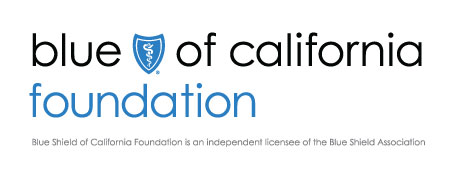For immigrant students, graduation discussions have an extra layer of complexity this year.
At one northern California school, recently arrived immigrant students are thinking about safety, politics and the culture of belonging – considerations that weren’t front of mind as they filled out their applications in the fall, before President Donald Trump took office.
A Night to Remember is a prom sponsored by Mission Church in Ventura for students with intellectual disabilities ages 12 to 25.
What A Night to Remember offers is an extravagant experience where students with disabilities are celebrated and put in the spotlight in a way that is safe and accessible
for all.
I spent three summers providing emergency services as part of Yosemite National Park’s Search and Rescue team, working hard on more than 100 rescue missions.
Emergency medical services look different in every park, but one thing is now the same: The systems that NPS visitors, residents and employees have come to rely on are on shaky ground.
When President Trump first announced tariffs on most foreign imports, Jennifer McLelland checked the packaging on her son’s medical supplies.
As a parent of a child with complex medical needs, McLelland argues for tariff exemptions on medical supplies that cannot be purchased from U.S. manufacturers.
My late father, Jim Carey, was born in 1940 as the youngest of three brothers. All of them were born with hemophilia B — a hereditary bleeding disorder that prevents blood from clotting properly.
Today, in honor of my father, I am focused on strengthening California’s plasma donation system and ensuring all patients, particularly those with rare diseases, have access to the life-saving medicines they need.
Last year, I took a week off work to help my mom care for my dad after his dementia progressed.
Because of California’s paid family leave program, I was able to be there without giving up my income. Caregiving time shouldn’t be a luxury. It should be something every family can count on.
People experiencing homelessness face repeated violence and stress from a lack of safety. They often engage in unhealthy behaviors, such as substance use, to cope.
A comprehensive strategy to reduce exposure to violence for people who are unhoused can reduce violence in the community as a whole, reduce public spending on emergency medical and other services and increase the chances that individuals can transition off the streets.
Thousands of families lost their homes that swept through Los Angeles County in early January. Local and state disability advocates said they have been checking in with families and trying to provide support as they adjust to life after the fires.
Let me introduce you to some people whose lives would be upended if Republicans in Congress carry through with plans to decimate health care funding that covers 15 million Californians.
They are my neighbors and friends here in Laguna Woods, a small Orange County community in which 83 percent of residents are over 65.
As a doctor of orthopedic physical therapy, I’ve treated numerous patients dealing with severe pain who were at risk for or already have opioid use disorder. This condition not only causes suffering for the patient, but also for their loved ones.
Most tragic of all is that it could be prevented with better access to alternative pain treatments covered by the patient’s health plan.
The Sisters Rise Circle is one of about a dozen circles run by Restorative Justice for Oakland Youth, a nonprofit based in Oakland that uses restorative practices to address conflict and promote healing.
Organizers launched the circle last fall as part of a response to what they saw as a large, unmet need among the communities and families they serve.
Tweets
[statictweets skin=”simplistic” user=”calhealthreport” resource=”usertimeline” count=”1″ ajax=”on” show=”username,time” /]














